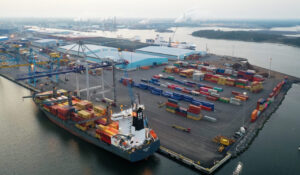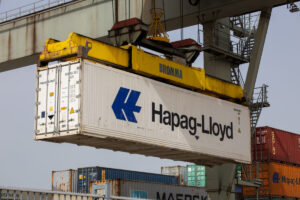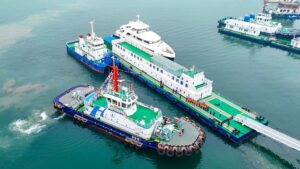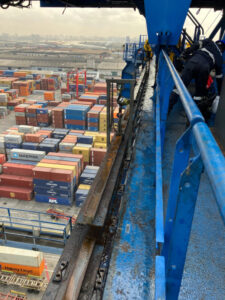Blog contribution by iContainers
There is Blockchain. Then there is the Internet of Things. These are just two of the hottest new technologies leading the wave of the many other lesser-known computing systems sweeping across the online world, each claiming to be the next big thing.
It is undeniable that the amount of start-ups looking to ‘disrupt’ the complex logistics industry has mushroomed over the past decade. In the US alone, over $1.5 billion has been reportedly been invested in this sector. Of those, nearly a third has gone into freight forwarding start-ups. While there is huge potential, not all will succeed.
However, before we explore new technology and the potential they hold in transforming the maritime shipping industry, we need to journey back and give the pillars of the industry a good study.
Creating a start-up from scratch within an innovative environment such as the internet is a test filled with obstacles not only from the ever-evolving nature of technology, but from also the multifaceted shipping industry itself. If you are to succeed, you need to grasp and fuse the two in a manner that works.
“When we started out with our online freight forwarding platform idea, we were so excited to monetize straightaway that our third hire was actually a salesperson. But then we realized that we didn’t have much to go with in terms of technical resources and that we needed to pour a lot more investment into technology,” says Iván Tintoré, President and Co-Founder of iContainers.
“Understanding our limitations, we got a full-time computer scientist on board immediately, who was actually the company’s fourth hire.”
Read another iContainers post: Maritime Shipping, Upgrade Your Cyber Security
Nevertheless, having the technological details set up is not enough, given the intricacies of the ocean freight industry and the multitudes of players involved. Having working knowledge of each aspect of shipping is just as vital.
However, that has not to say that you should start hiring IT specialists with logistics backgrounds.
“The key is to get your model implemented and the bigger players in the sector involved. Convincing shippers to function differently will be tough. So your platform has to be compelling,” says Iván.
So, what is standing in the way? The industry is set in its ways, but it is slowly opening up to change. Before one set method really takes root, there are scores of possibilities to explore. Ultimately, the only method to knowing what works and what does not is trial and error.
“Expect frustration, but don’t lose hope. Do not be afraid to make mistakes, it is part of the learning journey. If you have a clear idea, you have to go for it, without any doubt.
“It’s impossible to know that there’s a cliff waiting at the end of the road without actually having made the journey to the end of the road.”
About the company:
iContainers is a digital platform that’s fueling the future of freight services, on a mission to make the international trade industry more transparent and turnkey.
Its platform allows users to browse freight services, shipping rates, and scheduling times, with an option for door-to-door pickup – so that businesses can save time, money and improve on their bottom line.
iContainers serves more than 250,000 ocean trade routes to more than 300 sites in the US, Europe, Asia, Australia, Latin America, and Africa.









